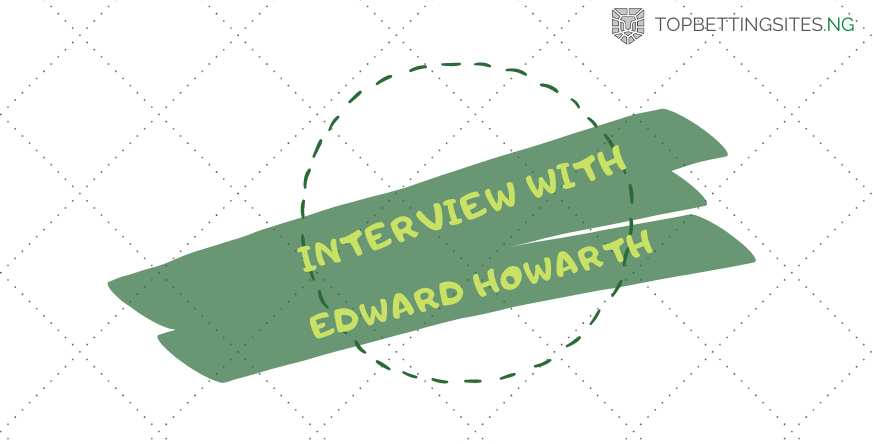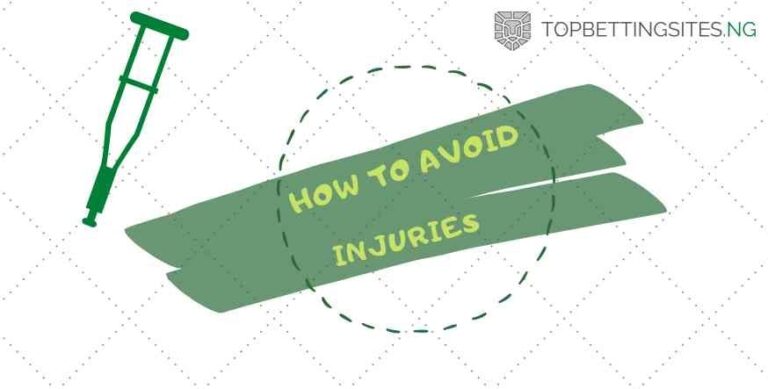Today we’ll talk with DashTickets lead writer and gambling professional Edward Howarth who’ll share a thing or two about how to become a better gambler. As it turns out, everyone is so concerned with the wellbeing of gamblers, from the government to problem gambling support groups, yet there is nothing that would educate gamblers to protect them from harm. This is why we turn to Edward and to DashTickets, a gambling magazine dedicated to helping New Zealand players participate in safer gambling.

Welcome, Edward. Will you help me become a better gambler?
I most certainly will. There are a few things you need to be aware of before we start – and before you start placing bets.
What would those things be?
You can indeed win big. Most players do win big at some point.
Oh, really? What’s the problem then? Why don’t players just take the money and run?
Well, that’s exactly where the problem lies. When you win, you think it’s free money and that if you already won – the proof is right here – then for sure you can win some more. But the sad truth is, you probably won’t. You’ll probably lose your entire winnings – and then some more.
Are you saying that anyone can be a winner if he stops after a big win?
Yes. If you only want to win, and not to have fun playing or whatever else can be guiding you, then it’s enough to walk away when your balance is positive.
Can you do that?
It’s difficult. I try though. When I win big at an online casino, I make a conscious effort to quit playing for that day. I leave it alone. Next day, I’ll login and see how much money I have, and make my plan for the day.
What games do you play to win big?
This is probably the most important skill, choosing a casino game to play. You won’t win big on blackjack, for example. You can only ever win 3:2. You ought to play games where you can hit a big win with a small bet.
Such as?
Slots, or any live dealer game that has a potential of a 5,000x payout. However, I must say slots, or pokies as we call them, are a mixed bag. Some pokies don’t pay well, others do. You shouldn’t play low variance pokies and should only ever play pokies where you can win big. One of the pokies I always play is Big Bass Splash. That game can pay. It can and it does get cold, but when it pays, it pays. Compared to some pokie that never pays big, Big Bass Splash is awesome.
Ok. Tell me, what about the bonuses. Do you claim them? Is there anything I need to know about them?
I claim them because I must test them, as I review casinos for DashTickets by depositing real money. And I can tell you something about bonuses that you must be aware of. The Terms & Conditions make or break a bonus. If the T&Cs are bad, there’s nothing you can do, you’ll lose your money, however good the bonus seemed when it was advertised to you.
Oh. How can I identify a good bonus?
Look at the rollover requirement. If it’s anything above 35x bonus you were given, don’t even bother. It’s a chore and you won’t make it even if you’re really lucky. I’ve had a bonus with a 45x rollover when I was reviewing a casino for DashTickets, I thought I’m going to make it, but no. Not even an experienced gambler managed to.
You lost all your winnings? Your deposit too?
Yes, lost all of it trying to chase the rollover requirements. They were impossible.
Are all casinos the same or is a choice of a casino an important one?
Us at DashTickets take it very seriously, so it’s an important question. You could be doing everything right, you can win, and then the casino refuses to pay you. This is why DashTickets is so dedicated to reviewing casinos inside out, as we want to tell the players which casino is a good one. I also personally hope that after reading a dozen of my casino reviews, the reader will get an idea of what things are important to me when I review a casino, and perhaps it will rub off on him. So he will be able to do his own review in his head the next time when he plays at some casino.
What about chasing losses? I know it’s bad. But it’s easier said than done. How does one stop himself?
There are no tricks – it’s sheer effort of the will. I like to put my gambling activities in daily frames. One day is one gambling session. It can be positive or negative, the next one starts from zero. If I lose today, tomorrow I will make the utmost effort to not be bothered by it, and to play the game calmly as if I was starting from zero.
Can you?
It can take years of practice to do it right. Yes, I can now. Because there’s a grander scheme of things, the month. Even if you have a really bad losing day, if you have fifteen decent days where you win a little, it’s not so bad, is it?
No, doesn’t sound bad. But what if the entire month is bad?
Then it’s a sign that this activity isn’t very profitable for you and you should be doing something else. Either your strategy isn’t working, or you’re playing a wrong game, or you’re playing at a wrong casino, or something else isn’t right.
Every gambler has his own strategy, am I right?
Yes. Every gambler will come up with his own way to beat the system. This is inherently true of all gamblers for some reason. If you’re a person attracted to gambling, it often turns out you’re also a person who thinks he is capable of being the one to finally discover the secret to beating the casino.
Of course, no one did?
Few did, yes. You won’t read about them in the news because they quietly took their winnings and walked away.
Have you ever walked away?
After many failed attempts, yes, I learned how to walk away. It’s a beaut. You win big, you smile, you withdraw the funds, and then you go buy something to stop yourself from reinvesting it into gambling.
What did you buy the last time?
Bought a paddle for my inflatable stand up paddleboard. An expensive one, too!
Is there anything else you can tell us about being a better gambler? I assume a lot of it has something to do with curbing the inherent naïveté in all of us.
And you’d be correct. I spent some time researching the Nigerian gambling market, where street smart people place sports bets and buy money for food from the winnings. Essentially, they survive by placing bets. You don’t fool a Nigerian gambler with free spins, free cash, TV ads. He will study everything and see if he can exploit the game or not. If he can’t, he won’t play. That’s probably why they don’t play casino games very much.
Yet Kiwis do, and they win the Mega Moolah jackpot often, don’t they?
Yes, they do. Ours is a different way of gambling altogether. We dedicate a portion of our disposable income to gambling every month, say, NZ$300. Then you play Mega Moolah in hope of winning the jackpot. Same as you play your lottery. You don’t chase losses on lottery. You buy the ticket and hope to win.
Is gambling all about that? Buy a ticket, hope to win, don’t despair if you don’t?
Exactly. All gambling problems can be traced back to one single thing: expecting to win. But it’s a game of chance so you can’t expect anything. The game doesn’t owe you anything, it doesn’t care about your past losses. It’s a wishing well. Throw your money in it, maybe you win big.
If you do, walk away?
If you do, walk away. That alone will make you better than 99% of all gamblers. Most of the people you meet at a land-based casino or have the pleasure of sharing the Internet with are people who are chasing losses or are in search of the win.
It’s those gamblers that you don’t see at a casino that have won and gone home. That’s who you want to be. You want to be the guy who bought a paddle with the casino’s money, not the guy who reinvested and lost the winnings.
Thank you, Edward!
My pleasure.



